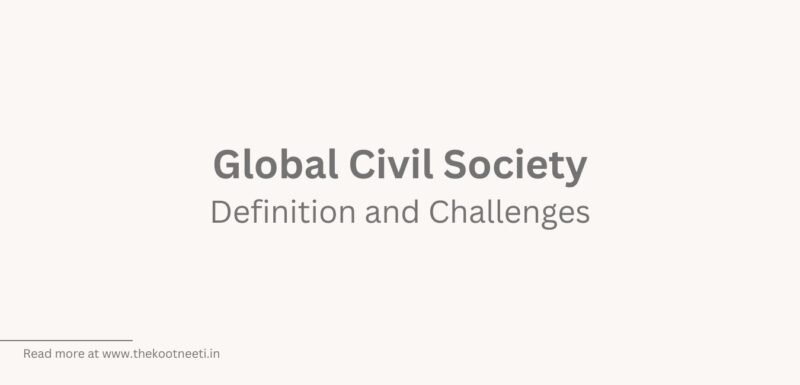Global Civil Society; Definition and Challenges

Global civil society refers to the network of non-governmental organizations (NGOs), advocacy groups, and other non-state actors that operate at the global level and work to promote social and political change. Global civil society includes a wide range of organizations, such as international development charities, human rights organizations, environmental groups, and social justice movements.
Global civil society plays an important role in international relations and global politics by advocating for issues such as human rights, social justice, and environmental protection, and by providing alternative perspectives on global issues. It also has the ability to shape global public opinion and to influence the policies of states and international organizations.
However, global civil society is also subject to various challenges and limitations. It is often dependent on funding from governments, foundations, and other sources, which can shape its priorities and agendas. It can also face challenges in terms of access and influence, as it may not have the same level of resources or institutional power as states and international organizations.
Some of the main challenges facing global civil society include:
- Funding: Many global civil society organizations rely on donations and grants to fund their operations. However, securing reliable funding can be difficult, especially in times of economic uncertainty. This can limit the resources available to global civil society organizations and hinder their ability to carry out their work.
- Political interference: Global civil society organizations often operate in countries where they may be seen as a threat to the government or ruling party. As a result, they may face political interference or persecution, which can make it difficult for them to carry out their work effectively.
- Cultural and language barriers: Global civil society organizations often operate in a variety of cultural and linguistic contexts, which can create communication and understanding challenges. This can make it difficult for these organizations to effectively engage with local communities and achieve their goals.
- Coordination and cooperation: Global civil society is a diverse and decentralized network, which can make it difficult for organizations to coordinate and cooperate effectively. This can hinder the ability of global civil society to achieve its goals and make a meaningful impact.
- Legitimacy: Global civil society organizations may face challenges in establishing their legitimacy and credibility, especially in contexts where they are seen as outsiders or where there is a lack of trust in civil society organizations more broadly.
Overall, global civil society faces a number of challenges that can hinder its ability to achieve its goals. However, by working together and overcoming these challenges, global civil society can play a powerful role in promoting positive change and promoting a more just and equitable world.


















